
A lot has been published on the vast topic of psychedelics over the past 70 years, and while a lot of what has been written makes all manner of elaborate claims both positive and negative about these powerful substances, much if not most of the books on the matter range somewhere between misleading and outright fabrication. What with all the war on drugs propaganda, new age hype and overpromise, outdated or incorrect science, and repetitive trip reports, it can be difficult to find a book on psychedelics that’s actually worth your time.
To help you sort through the expansive assortment of books on psychedelic drugs, I’ve put together a selection of seven titles you can count on for a combination of accurate information and an engaging read. Some are classics dating back to the early days of the movement while others offer the latest research on psychedelic therapy.
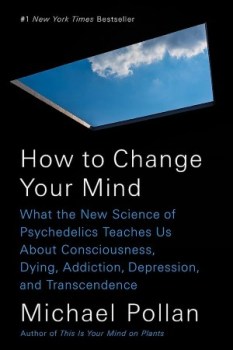
How to Change Your Mind, Michael Pollan
It’s difficult to claim that there’s any single book that provides a more thorough overview of the state of psychedelics in the year of our lord 2023 than Michael Pollan’s How to Change Your Mind, which was the source material for his Netflix series of the same name. Arguably, no other book, series, and writer has played a more instrumental role in the mainstreaming of psychedelics. From the history of the movement and the latest science to a detailed exploration of psychedelic therapy and the psychedelic experience, Pollan’s book covers pretty much all the bases. There are others who have been in the movement longer, and still others with more firsthand experience with the substances, but Pollan’s reputation as a respected journalist has given the movement the credit needed to appeal to a wider audience than ever.
Psychedelic Wisdom, Dr. Richard Miller
Psychologist and addiction treatment specialist Richard Miller has played a central role in the psychedelic movement for decades, and in his recently released Psychedelic Wisdom, he gathers what he’s learned through the course of it all into a book that is highly informative and revelatory. To bolster his own experience, Miller spoke with an array of the top names in the field: researcher and activist Amanda Fielding, ethnobotanist Dennis McKenna (brother to perhaps the greatest psychedelic mushroom researcher of all time: Terrance McKenna), head of MAPS Rick Doblin, and many more. While the latest research is an important element in the book, it’s primarily concerned with the wider implications of what psychedelics can achieve for individuals and society as a whole.
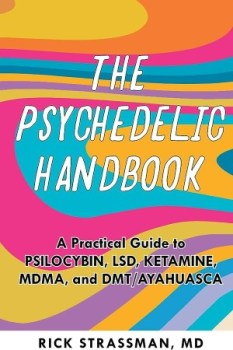
The Psychedelic Handbook, by Dr. Rick Strassman
Dr. Strassman is among the most renowned psychedelic researchers in the field, particularly in regard to DMT, which he wrote about in another book that certainly could have been included here: DMT—the Spirit Molecule. With his latest release — The Psychedelic Handbook — Dr. Strassman provides a comprehensive guide to psychedelics, including research, benefits and risks, detailed information about each drug, and tips for navigating the experience itself. This is an outstanding book for anyone who is somewhat new to psychedelics and looking for a broad overview and something of a “how-to.”
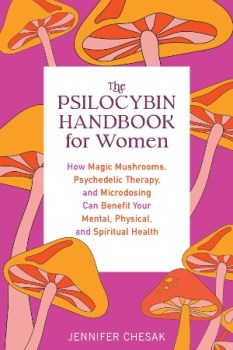
The Psilocybin Handbook for Women, Jennifer Chesak
As research has revealed more information about psilocybin, we’re beginning to learn that there may be specific benefits for women, as well as specific risks. Jennifer Chesak dives into all of it in The Psilocybin Handbook for Women, including why women may be more likely to experience “bad trips,” what women should know about tripping in relation to their menstrual cycle, how psilocybin fits into pregnancy and early motherhood, and more. Chesak performed extensive research to compose the book, drawing from both modern science and traditional indigenous wisdom.
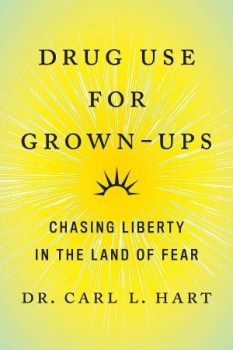
Drug Use for Grown-Ups, Dr. Carl Hart
A well-known psychologist and neuroscientist at Columbia University, Dr. Carl Hart has been a prominent figure in the drug research and legalization movement for many years. Recently, he caused something of a stir due to his latest book Drug Use for Grown-Ups, which not only advocates the use of increasingly accepted substances like psychedelics, but more controversial drugs like heroin and the new designer drugs coming mostly out of Europe. In the book, he explains why and how drugs can be enjoyed in a mature, safe fashion, and explores the ways our society can take steps to not only reduce drug harm, but leverage them to our general collective benefit.
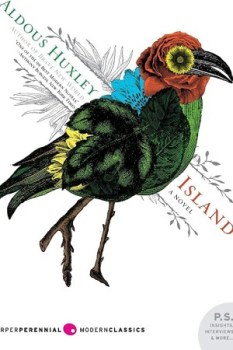
Island, Aldous Huxley
Way back in 1954, Aldous Huxley’s The Doors of Perception became a household name. In it, he narrated his first experience with mescaline, which resulted in one of the most foundational psychedelic texts of all time. His lesser-known Island, on the other hand, is a fictional work where he applied what he learned about psychedelics over the course of a decade, creating something of a thought experiment in the form of an isolated island utopia that is home to a socialized society, a key aspect of which is a ritual involving psychedelic mushrooms. A cult classic, Island offers an enjoyable read and stands as a classic work of psychedelic art.
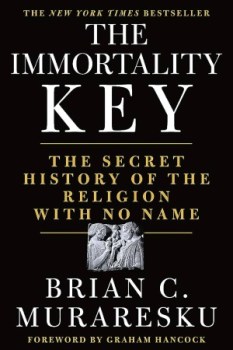
The Immortality Key, Brian Muraresku
Part research text, part historical mystery, Muraresku’s The Immortality Key takes an extremely deep dive into how psychedelics influenced Western religion. Starting with the earliest known references to prehistoric psychedelic use, he traces the thread through the Eleusinian Mysteries of the Ancient Greeks, to the earliest days of Christianity, on through the development of the religion as psychedelic plants became increasingly repressed and stigmatized. As Muraresku follows clues across Europe, it becomes increasingly clear that psychedelics played a major role in the history of Christianity.




